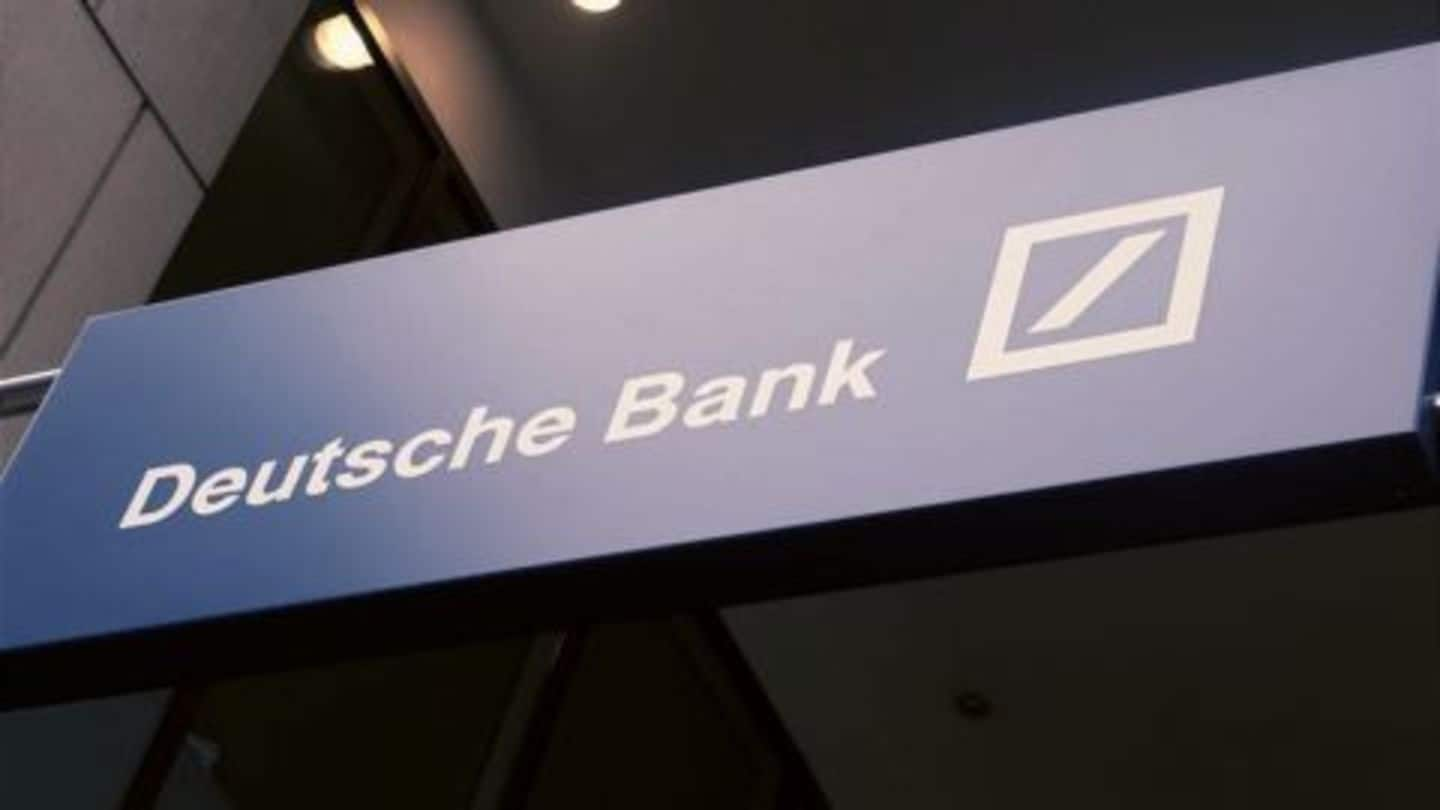
Deustche Bank poses serious risk to financial stability: IMF
What's the story
Deutsche Bank Aktiengesellschaft shares hit a 30-year low after the International Monetary Fund, and Federal Reserve said that the bank posed a serious risk to financial stability. The IMF stated the bank was the world's "riskiest financial institution" and a possible source of external shocks. Deutsche Bank's US unit has also become one of the two banks to fail the Federal Reserve's stress test.
Introduction
About Deutsche Bank
Deutsche Bank Aktiengesellschaft, headquartered in Frankfurt, is a German bank that operates globally and provides financial services to private, institutional, and business clients. With its presence in over 70 countries, the bank has an employee strength of over 100,000; it is active in Europe, North and South America, and Asia-Pacific region. In 1870, it was founded as a specialist foreign trade bank in Berlin.
2015 Loss
First annual loss of Deutsche Bank since 2008
Deutsche Bank posted a massive loss of €6.8 billion for the year 2015; it was the first annual loss of the bank since 2008. The bank stated some decisions taken in the second half of the last year contributed to the loss. Bank officials said the bank could transform into a more efficient, stronger, and better run organization by implementing their strategy in 2016.
Data
Deutsche Bank's 30-year low
Deutsche Bank shares tumbled over 3.5% to €12.05, the lowest value in 30 years. Apart from the German bank, share prices of other banks have also plummeted in the wake of the Britain referendum to exit the European Union.
Systemic Risks
An important net contributor to systemic risks: IMF
IMF's Financial Sector Assessment Program said Deutsche Bank, followed by HSBC and Credit Suisse, appeared to be the most potential source of systemic risks among Globally Systemically Important Banks. IMF said the German banking system poses a greater threat of outward contagion rather than other internal risks. Need for intense supervision, risk management, monitoring cross-border expenses, ability to carry out new resolutions was emphasized.
Quote
Banking sector shock
The IMF stated: "In particular, Germany, France, the UK and the US have the highest degree of outward spillovers as measured by the average percentage of capital loss of other banking systems due to banking sector shock in the source country."
Stress Test
31 out of 33 US banks clear stress test
The Federal Reserve's stress test measured how 33 US banks would perform in the new financial crisis. Reportedly, 31 banks out of 33 managed to clear the test as they could boost dividends, and make share buybacks to their investors. But, two lenders, Deutsche Bank, and Santander failed to clear the Federal Reserve's test; both the banks couldn't clear the test in 2015 too.
No Comments
No official statement released yet
The officials of Deutsche Bank were reportedly not available to comment on the IMF's statement and Federal Reserve's stress test. Bill Woodley, an executive at Deutsche Bank's US unit, stated that the bank's capital adequacy has never been in doubt. He added that the bank would try to implement the lessons it learned this year to strengthen its capital planning process.